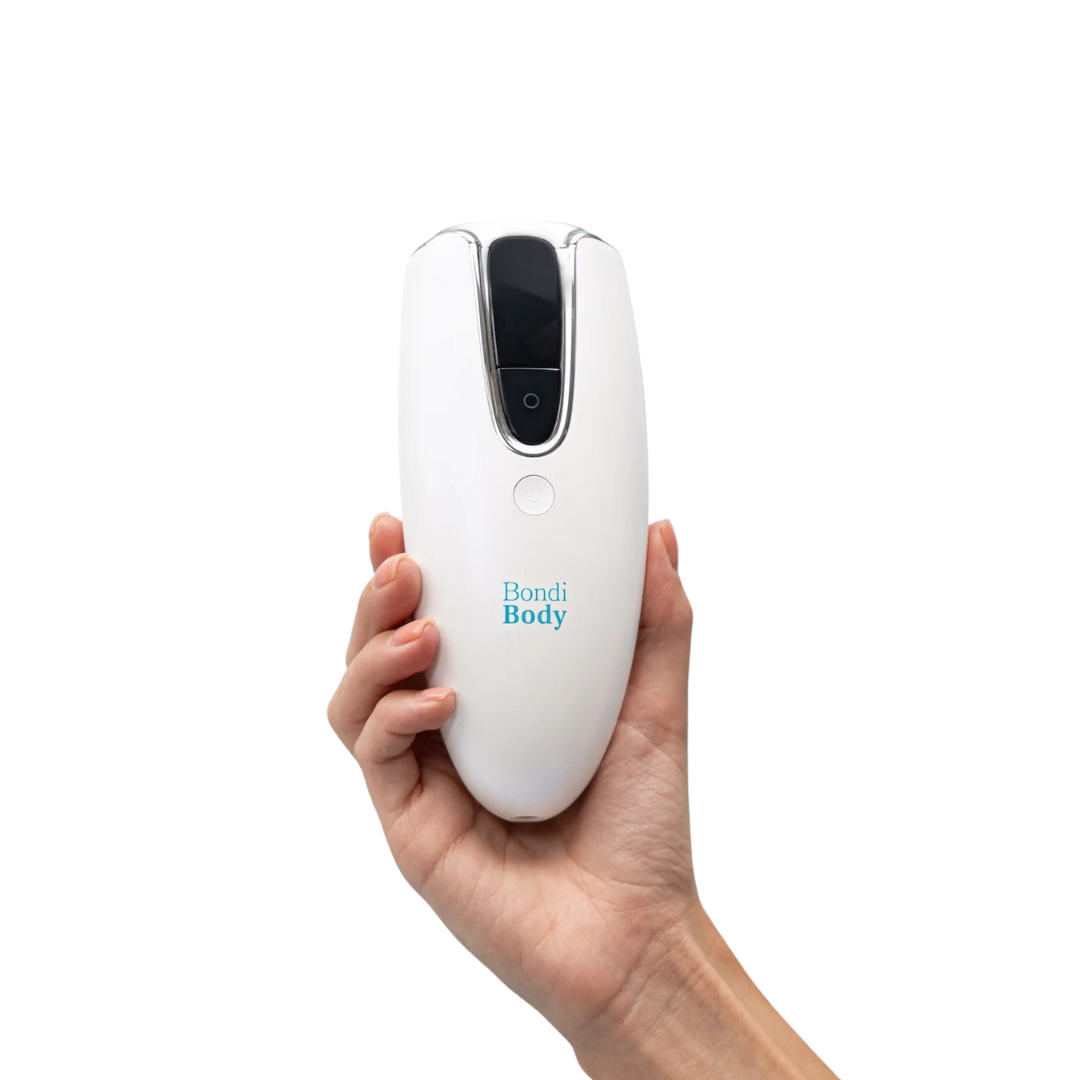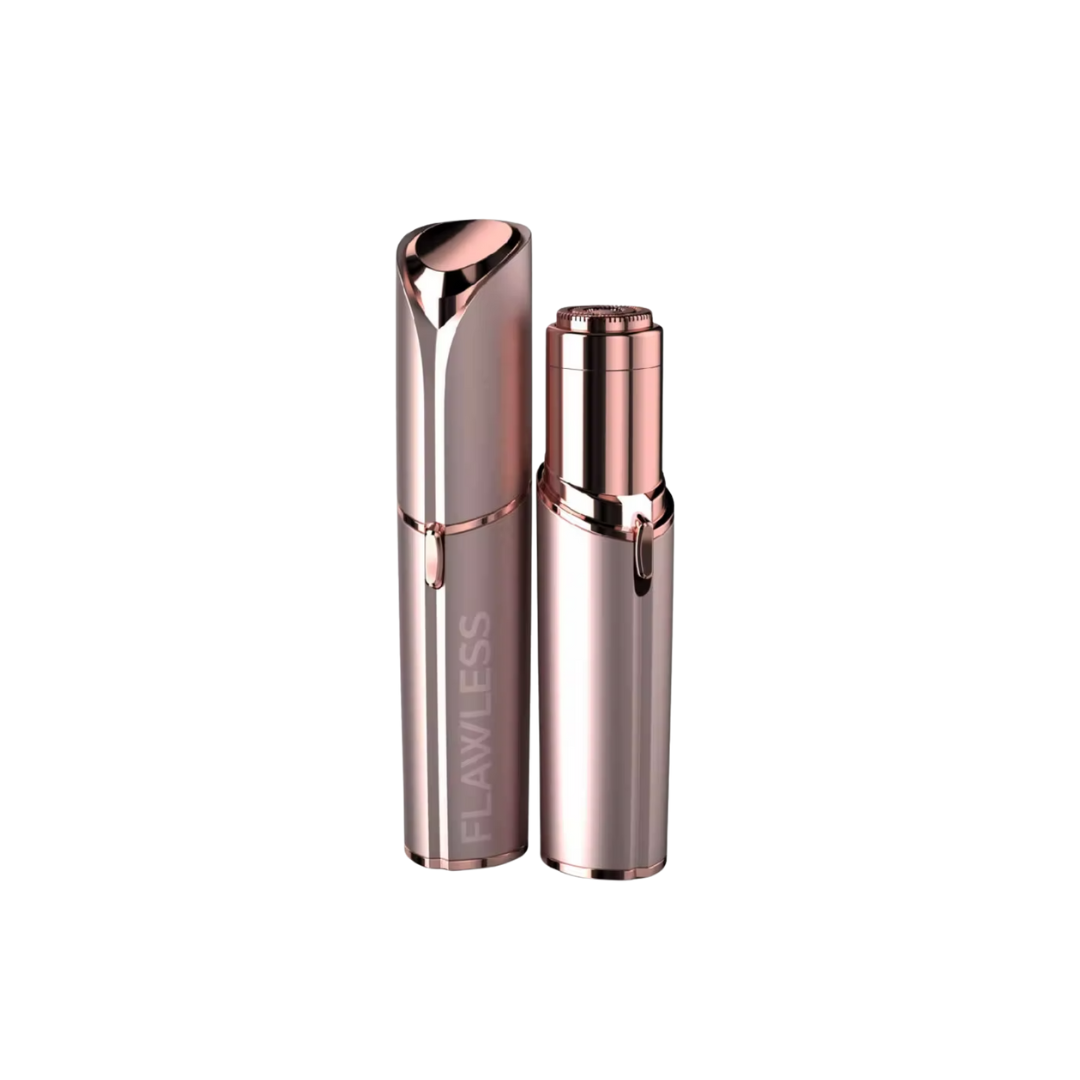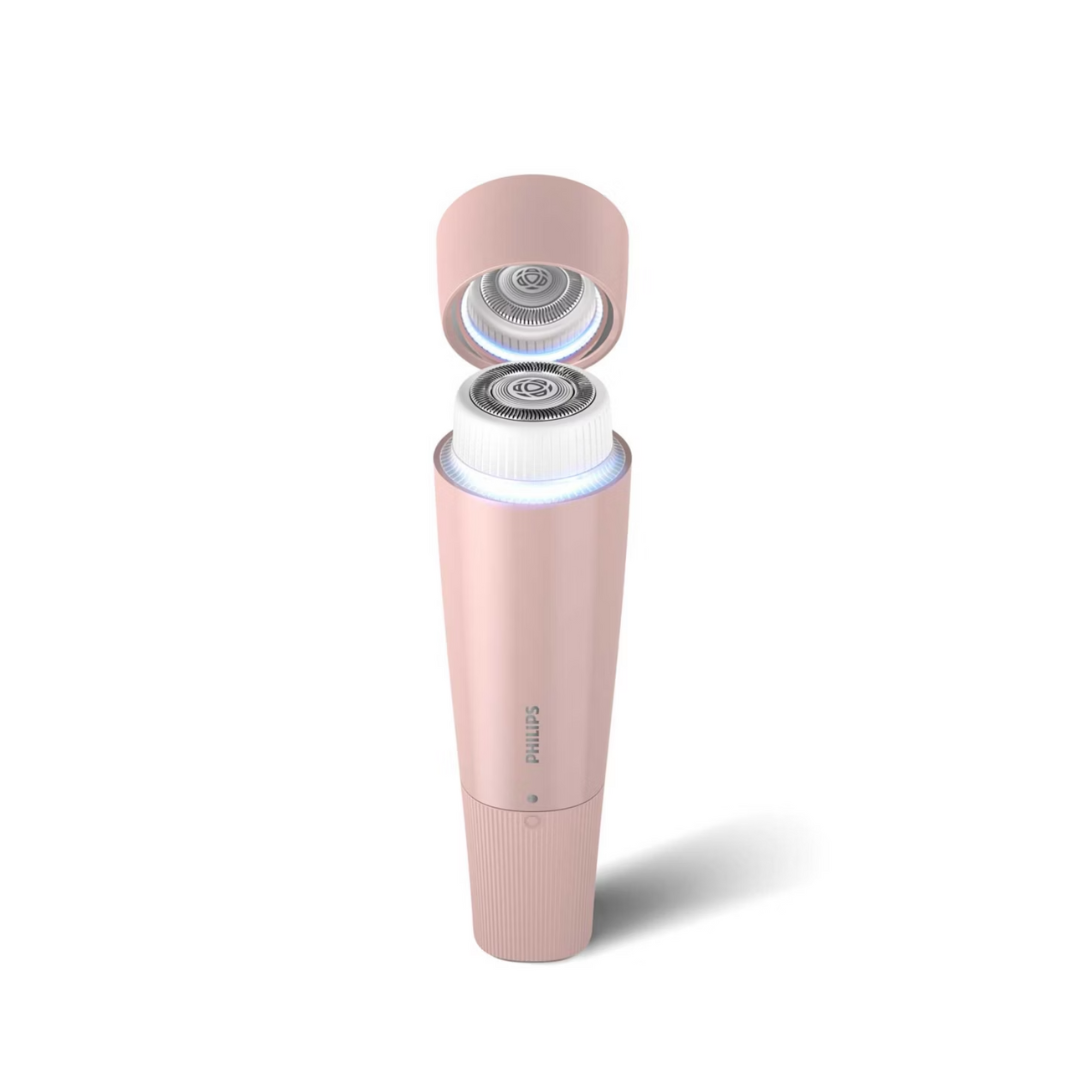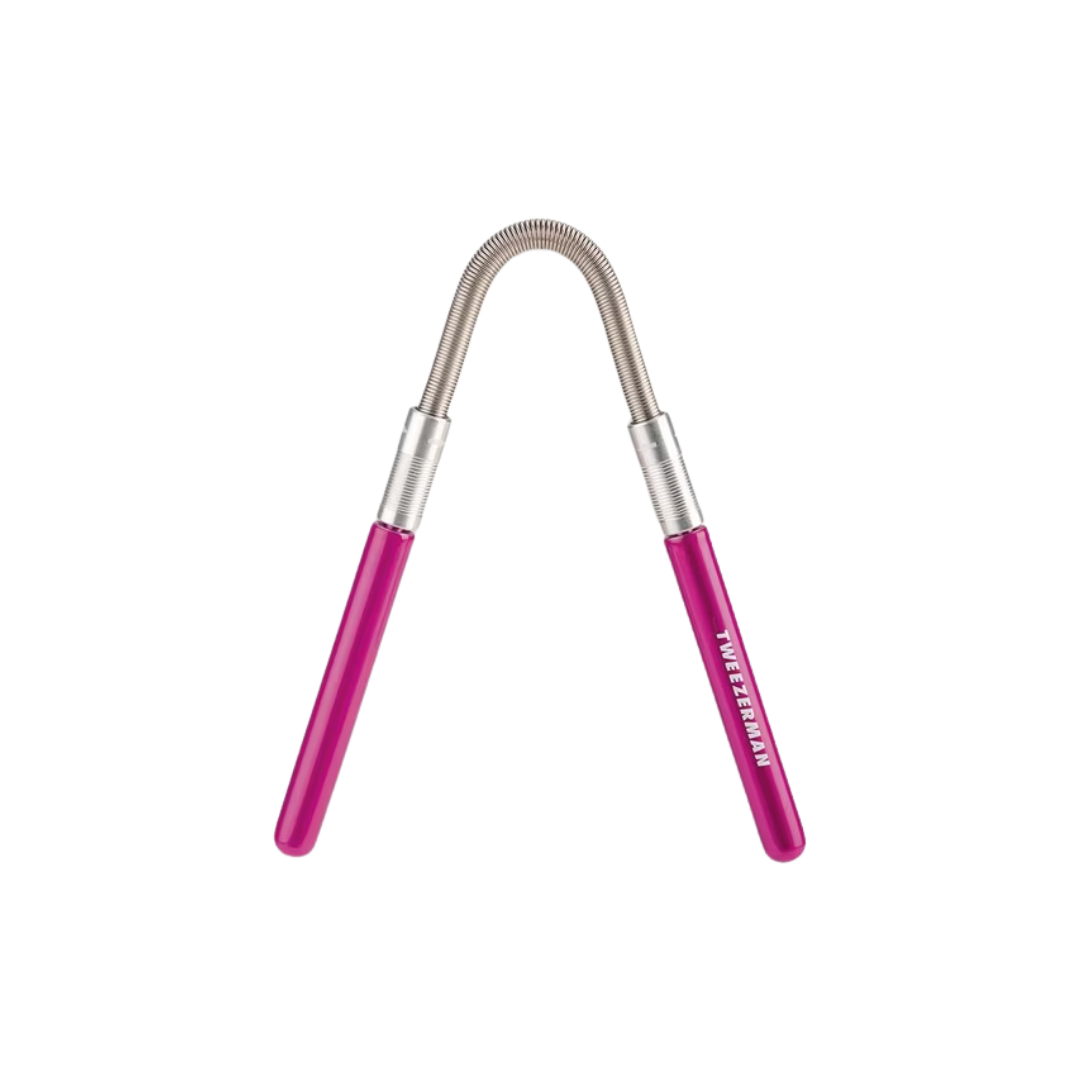Should You Really Pluck Chin Hair? Here's What The Experts Say
(Including what you should do instead)
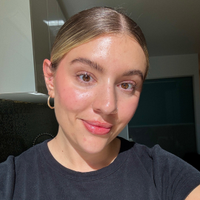
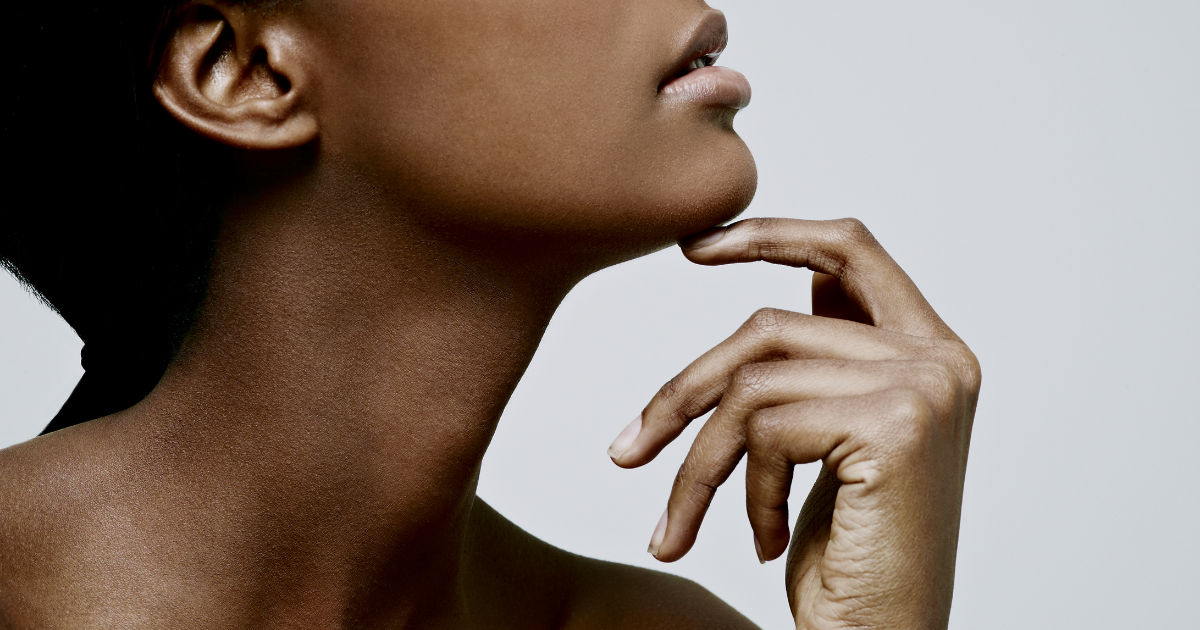
Spotting that very first chin hair can be an alarming experience. Many pop up seemingly out of nowhere, and with the hair in this area usually being extra coarse, they can be far more noticeable than in other places. Historically, there's been plenty of mixed messaging about the removal of facial hair, so what's the deal, exactly? Here, we speak with a hair removal expert about the best approaches for chin hair specifically.
Why does chin hair grow?
For many of us, the odd chin hair may just start appearing – but then things start moving quickly, with rapid growth and more than a few friends becoming the norm. So why exactly do we get these pesky unwanted hairs in the first place? Unfortunately, one of the biggest contributing factors is something we can't really help, says 'Hair Removal Queen' Trish Coulton (who founded Bondi Body).
"Most of the time, it’s simply down to hormones, specifically androgens (like testosterone), which everyone has, but in different amounts," she explains. "As we age, especially after our mid-30s or during hormonal shifts (think pregnancy, postpartum, perimenopause, menopause), the balance between estrogen and androgens changes. That shift can 'wake up' dormant hair follicles on the chin, making them sprout thicker, darker hairs."
Who is more prone to chin hair?
As mentioned, there are particular age groups and conditions that may make you more likely to experience hairs on the chin. Generally, says Trish, you can usually expect to notice them as more of an occurrence past the age of 35, when certain hormonal changes are taking place. If you have PCOS or another hormonal condition, you may be more prone to them, too, because you "experience higher androgen levels, which can lead to increased growth along the chin or jawline."
Genetics also plays a big part, as well. "If your mum or aunt has that infamous one stubborn chin hair, chances are you might inherit it too." Sorry in advance.
A post shared by Wilkinson Sword Intuition (@intuition_by_wilkinson_sword)
A photo posted by on
How can you remove chin hair (and what's best to avoid)?
There's often mixed messaging about how you should remove facial hair in general. There are horror stories about plucking and shaving, but what's really the truth? Trish actually says that tweezing is fine for the odd hair, and wax strips can be used if there are several hairs in one area.
However, if you want longer-term results, laser hair removal can be a game-changer. You can have this done in-salon, or invest in an at-home device that can work across the entire body as well as the face. Speaking of her IPL device by Bondi Body, Trish says it "works by targeting the hair follicle at the root, dramatically reducing regrowth over time and, in many cases, leading to permanent removal."
Celebrity news, beauty, fashion advice, and fascinating features, delivered straight to your inbox!
Remember that if you are undergoing a series of laser hair removal treatments, you'll need to refrain from plucking between sessions. You can only shave.
Speaking of shaving, it's not always the best method for long-term use on the chin. While she notes it's fine in terms of hair thickness, Trish says that shaving "can irritate the skin, lead to ingrown hairs, or leave a faint shadow." Ensure you are using a specially tool designed for the face, and be careful.
Trish also warns of over-waxing ("it can cause skin lifting or pigmentation issues, which become more likely as skin gets thinner and more fragile with age") and DIY chemical depilatories, which "should also be used with extreme caution, as their strong formulas can easily burn or irritate the sensitive facial area if not applied perfectly."
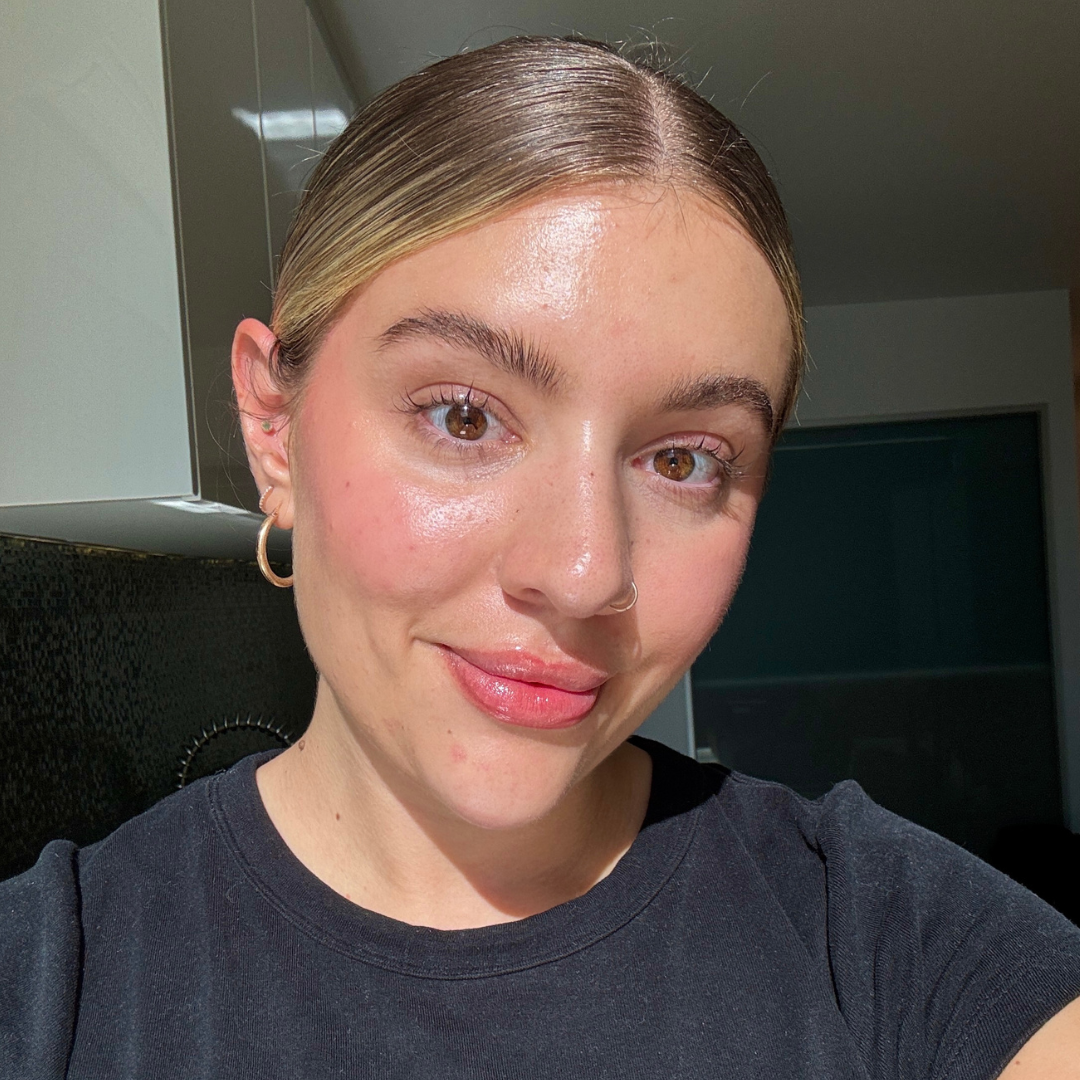
Rebecca is a freelance beauty journalist and contributor to Marie Claire. She has written for titles including Refinery29, The Independent, Grazia, Coveteur, Dazed, Stylist, and Glamour. She is also a brand consultant and has worked with the likes of The Inkey List on campaign messaging and branded copy. She’s obsessed with skincare, nail art and fragrance, and outside of beauty, Rebecca likes to travel, watch true crime docs, pet sausage dogs and drink coffee. Rebecca is also passionate about American politics and mental health awareness.
